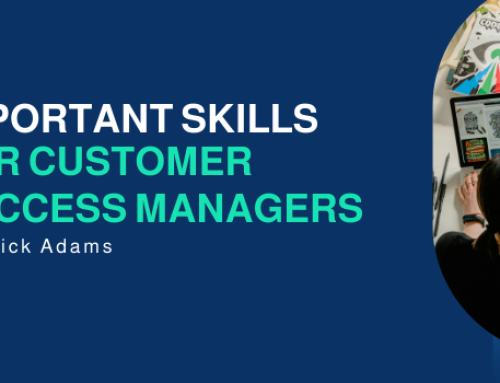She canna take anymore Cap’n’
Dealing with work overload, becoming more effective and meeting your goals.
You often hear that the wife is the last to know when their partner is having an affair.
Well, you could say something similar about stress; the person suffering from it is usually the last to know. It’s unlikely you will have moved from being stress-free to being stressed overnight, as this condition gradually builds up, so it has become the norm for the stressed person.
It also presents in different ways in different people; working as a trader in a pressured environment, I had a colleague who would breeze through the day, reacting in seconds to stressful situations, often betting investing tens of millions of the bank’s funds seemingly on instinct and without hesitation. Yet I have seen the same individual descend into self-doubt and indecision over whether to take an umbrella when he left the building in case it rained.
So, as you see, this is not something for which you can create a checklist.
Under pressure is a normal part of life; it can help you act, feel more energised and get results.
But as mental health researcher Dr Sarah Jones stated, “Stress isn’t a psychiatric diagnosis, but can cause mental health problems and make existing problems worse”.
If you often struggle to manage feelings of stress, you may go on to develop a mental health problem, and this can start to feel like a vicious circle.
In her report Mental Health in the Workplace, Dr Jones discussed the concept of the stress curve. (Illustration?). In this model, the upside of the curve is characterised by the right amount of pressure generating high motivation and peak performance. Then you typically reach the tipping point – this is where fatigue sets in, and the downside of the curve begins, marked by too much pressure; after fatigue comes exhaustion, then ill health and finally, breakdown.
Warning! Warning! You are about to enter a ‘slogan overuse zone’.
Work smarter, not harder! Schedule meetings with yourself. Plan tomorrow tonight; the list goes on and on.
But apart from being essentially meaningless, when you stop to think about some of these statements, they are actually quite insulting.
Take ‘work smarter, not harder’, something you tend to hear when budgets or headcount are being reduced. When you stop and think about it, there is the unspoken assumption that you weren’t working smart up to that point; it also implies you haven’t been working as hard as you could (otherwise, how could you work harder?)
And lastly, it is slightly patronising because it ignores the elephant in the room (OK, I think we’ll finish with slogans now…)
The issue is not that staff have not been working hard enough. Nor that they aren’t being smart; it’s that they will have to do the same (or more) with less getting the same results (or better).
Recognising signs of stress.
We have already established that the ‘stressed out’ individual is unlikely to realise they are stressed, so how do you step away from yourself and become your own impartial observer.
Starting a journal or diary can be an excellent way to begin.
Over the course of a couple of weeks, you can begin to identify which situations create the most stress and how you respond to them.
By recording your thoughts, feelings, and other information, you can begin to look for patterns of behaviour. These influences may include people and circumstances (virtual meetings, client calls, project updates), the physical setting, and how you reacted.
Think about how you felt at the time and afterwards. Did you raise your voice?
How did you deal with the situation? Get a drink from the vending machine, or go to the staff canteen? Did you go for a walk or sit in the park?
Taking notes can help you find patterns among your stressors and your reactions to them.
Going further, think about your coping mechanisms, did stress trigger any negative or harmful responses, for example, fast food or alcohol?
Developing good behaviours.
In today’s business environment, the digitalverse means there is pressure to be available 24 hours a day.
Think about establishing boundaries and simple rules for yourself. This may be deciding not to check emails from home or in the evening or not answering the phone during dinner. How you blend work and life is a personal choice, but creating clear boundaries between these areas can help reduce the potential for work-life conflict and the stress that accompanies it.
Take time to relax and recharge – set aside time to ‘switch off’. Don’t let your vacation days go to waste; focus on non-work activities and hobbies. When you return to work, you’ll be re-invigorated and ready to perform at your best.
Stress can be contagious!
This is a psychological effect known as emotional contagion. Research has shown it’s possible to “catch” the emotions of others. In other words, team members naturally (and unconsciously) mimic the behaviours, posture, and facial expressions of those they work with. When you stop to think about it, you’ve probably witnessed emotional contagion in your working environment. For instance, when someone’s negative mood brings down the energy of a meeting,
Researchers have also identified a subset comprising around 20% of the working population whom they have called sensitive strivers. These individuals tend to have more active mental circuitry in empathy areas of the brain (called mirror neurons), which cause them to be more influenced by — and reactive to — other people’s feelings and behaviour.
Typically, these individuals are driven, and demand excellence from themselves at all times, but when they fall short of those impossibly high expectations, their innate sensitivity and thoughtfulness cause them to spiral into self-recrimination and doubt.
Sound familiar?
Taking your emotional temperature.
Consider for a moment your position as a Customer Success Manager. In this role, you may be the primary source of emotional contagion. Think about yourself as a sort of mood radiator. Because of your power and authority, other team members will take their lead from you and pay attention to your behaviour. If you’re carrying emotional baggage in the form of worries and fears into conversations, your colleagues will pick up on it, and your mood will inevitably taint others. This is why, periodically throughout the day, you must do an internal ‘mood check’. Think about what emotions and body language you’re “radiating” in your exchanges. And this is as relevant for in-person as virtual meetings; you should always try to be mindful of the tone and feel you’re transmitting.
It’s not all Bad!
Positive vibes can spread, too. Aim to leverage the fact that a human’s nervous system can also sync to your advantage using a phenonium called co-regulation. This happens when you consciously try to calm yourself, which may then influence your colleagues and team members. For instance, if you’re dealing with a problematic situation, downsizing, or budget cuts, make a conscious effort to slow down your breathing, meditate or clear your mind, and prepare what you will say. Speak more quietly and slowly, think about your body language, and make it positive.
As I mentioned, try to step ‘outside’ yourself and visualise how others see you.
You’ll notice that your team members’ mood moves as your mood shifts.
Meeting your Goals
We all tend to define our goals in specific ways, achieving aim ‘A’ by date ‘B’. As you can imagine, this comes under the heading of self-imposed and arguably unnecessary stress. But by thinking a little differently – you don’t need to lower your bar – you can broaden your definition of what qualifies as a “win.” Sometimes achieving your desired outcome isn’t always in your control, so try broadening your criteria of what constitutes success.
Keep your targets simple, easily defined and realistic. For example, overcoming resistance from management or colleagues to a proposal, standing up for what you think is right, bringing a new mindset or attitude to a recurring problem or taking a small step toward a goal.
Take a few moments at the end of the workday to reflect not only on your highlights (praise, recognition, positive reviews, etc.) but also to consider whether you were able to translate your upbeat mood to your team.
Being kinder to yourself will inevitably lead to you treating your colleagues in a similar way, making the working environment better for all concerned.






Leave A Comment
You must be logged in to post a comment.